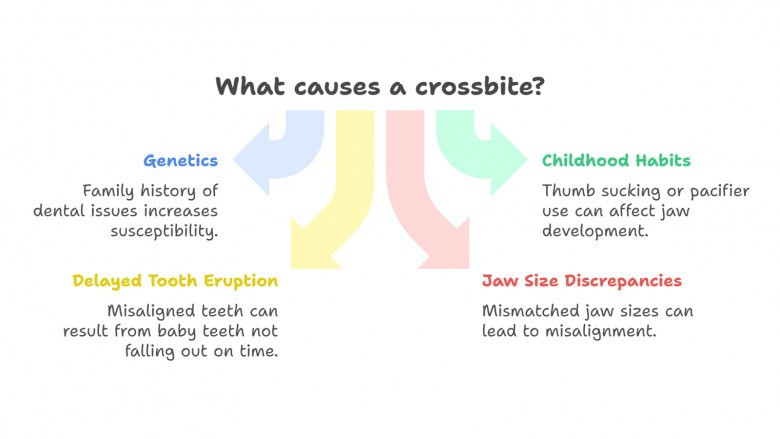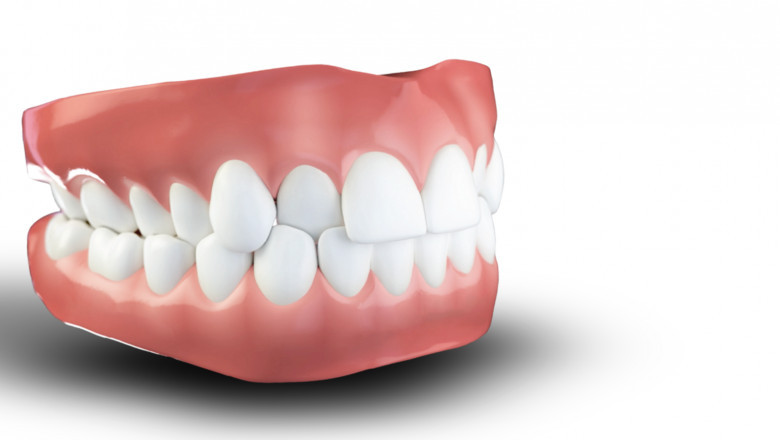views
Ever feel like your teeth just don’t line up right? Maybe chewing feels awkward, or you catch yourself biting your cheek more than usual. If you’re in North Carolina and these issues sound familiar, you might be dealing with a crossbite—a dental misalignment that can sneak up on you but cause big problems if left untreated.
What Exactly Is a Crossbite?
A crossbite happens when your upper teeth sit inside your lower teeth instead of slightly overlapping them. This misalignment can affect just one tooth or several, and it might involve the front (anterior) or back (posterior) teeth.
Why Should You Care?
Ignoring a crossbite isn't just about aesthetics; it can lead to:
-
Jaw Pain and TMJ Disorders: Misaligned teeth can strain your jaw muscles, leading to discomfort and even temporomandibular joint (TMJ) issues.
-
Tooth Wear and Decay: Uneven pressure on your teeth can cause them to wear down faster, increasing the risk of cavities.
-
Gum Recession: Misalignment can make it harder to clean your teeth properly, leading to gum issues.
-
Speech Difficulties: A crossbite can interfere with the way you speak, causing lisps or other issues.
-
Facial Asymmetry: Over time, an untreated crossbite can affect the symmetry of your face.
Spotting the Signs
Here are some common symptoms to watch out for:
-
Teeth Not Aligning Properly: Your upper and lower teeth don't meet as they should.
-
Frequent Cheek or Tongue Biting: Misaligned teeth can cause you to bite the inside of your mouth accidentally.
-
Jaw Pain or Clicking: Discomfort or noises when moving your jaw.
-
Difficulty Chewing or Speaking: Trouble with basic oral functions.
-
Headaches: Strain from misalignment can lead to frequent headaches.
What Causes a Crossbite?
Several factors can contribute to developing a crossbite:
-
Genetics: If your family has a history of dental issues, you might be more prone.
-
Childhood Habits: Thumb sucking, prolonged pacifier use, or mouth breathing can affect jaw development.
-
Delayed Tooth Eruption: Baby teeth not falling out on time can cause permanent teeth to come in misaligned.
-
Jaw Size Discrepancies: A mismatch between the size of your upper and lower jaws can lead to misalignment.

Treatment Options
The good news? Crossbites are treatable. Here’s how:
-
Braces: Traditional metal braces can gradually move teeth into the correct position.
-
Clear Aligners: For mild to moderate cases, clear aligners like Invisalign offer a less noticeable option.
-
Palatal Expanders: Especially effective in children, these devices widen the upper jaw to correct alignment.
-
Jaw Surgery: In severe cases, surgical intervention might be necessary to correct the jaw structure.
Timing Matters
Early intervention is key. The American Association of Orthodontists recommends that children have their first orthodontic evaluation by age 7. Addressing issues early can simplify treatment and lead to better outcomes.
Living in North Carolina? You're Not Alone
If you're in North Carolina and suspect you or your child has a crossbite, don't wait. Early diagnosis and treatment can prevent more serious issues down the line. You can go over our dentist in Charlotte to explore your options and take the first step toward a healthier, more comfortable smile.














Comments
0 comment